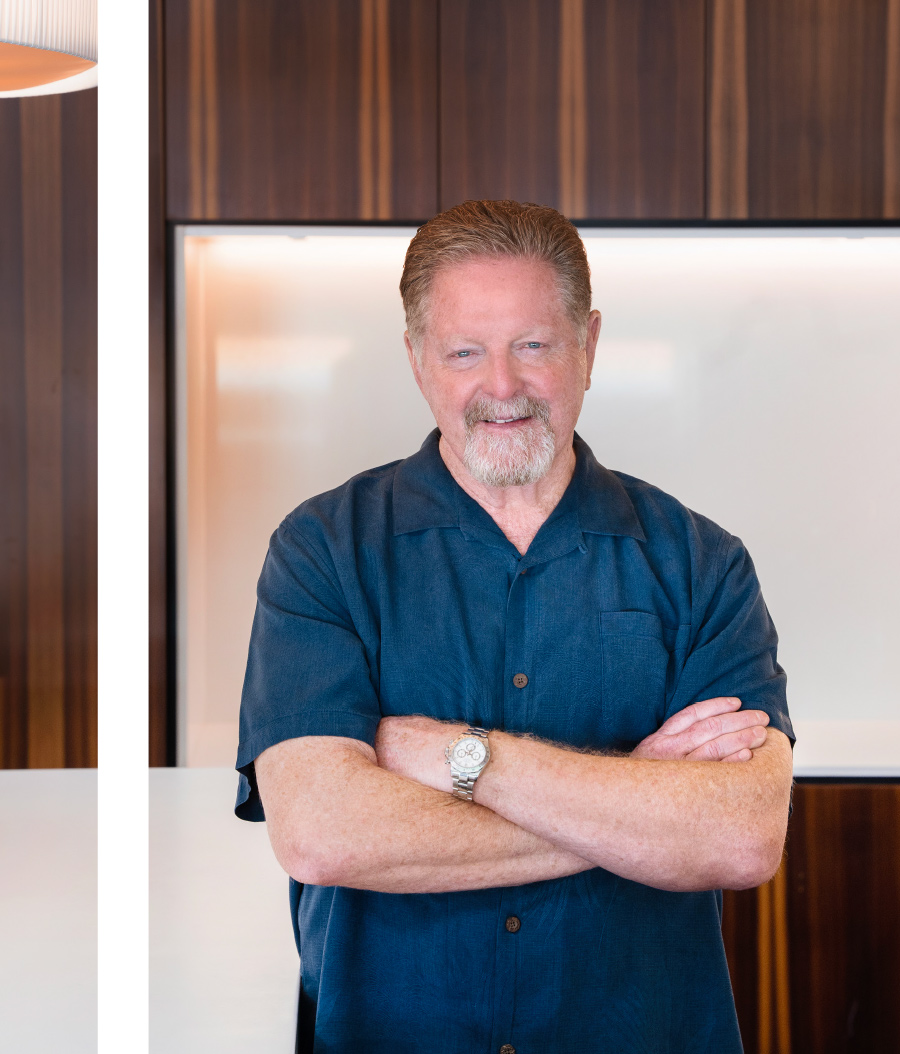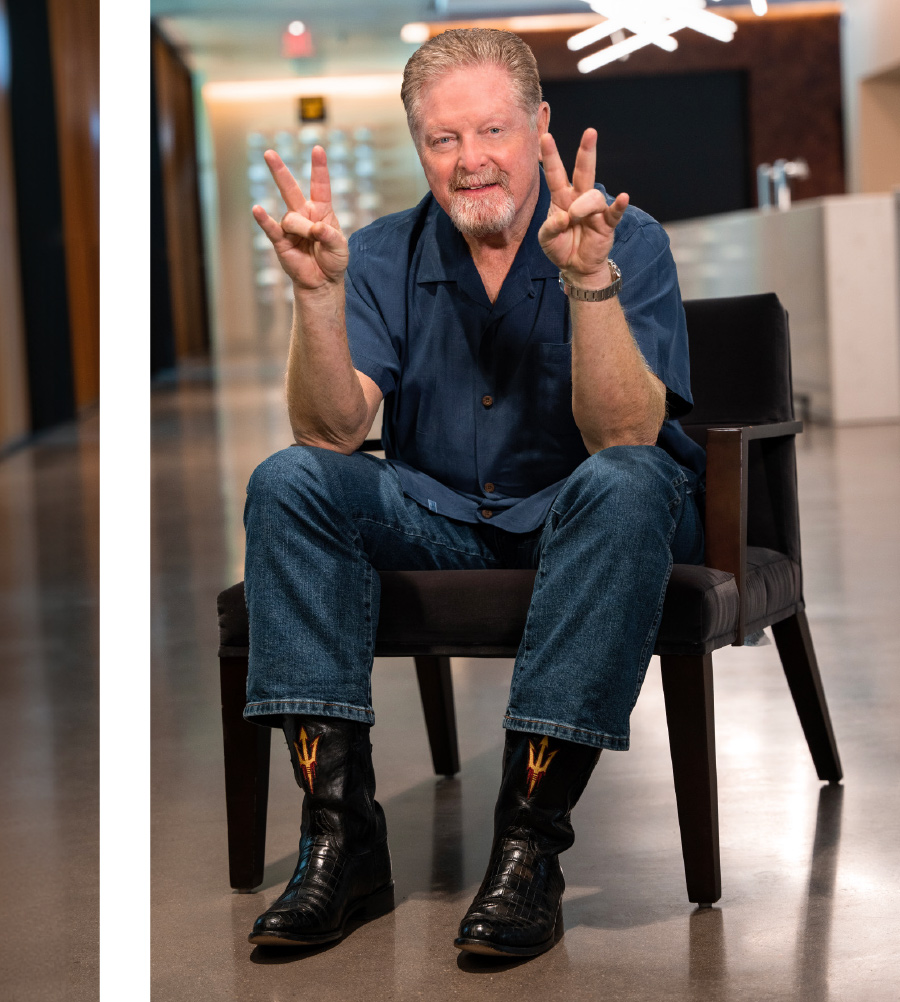People Power

People Power

But ask him the common thread that ties it all together, and he doesn’t hesitate: “People skills, it’s what makes it all work,” Kent says. “People who can work with others, grow others, motivate them, develop them, and provide a vision of career paths. That’s what has made us successful.”
In case you’re wondering, the Kent Companies includes convenience stores, truck stops, trucking, wholesale fuel, food service, ice cream, check cashing, urgent care, a sign company, a tire store, automotive services, car washes, and ranching. The convenience stores and travel centers, which sell fuel, are the largest business he owns and operates.
When Kent graduated from Arizona State University with a degree in business administration, his father and two older brothers were operating the family business, which consisted of 12 convenience stores and more than 40 gas stations and service centers.
The last thing Kent wanted was to be the fourth rung down from the top. He’d earned a black belt in taekwondo and planned to open a karate school in Tempe along with a convenience store. He was searching out sites for a 7-Eleven when his father called him—it turned out his oldest brother was leaving the business.
A change of plans
Kent credits his ASU education with “teaching me how to analyze problems, weed through the issues we all face in business, and focus on the important things.”
He intentionally sought out faculty members with business experience that interested him. It’s one of the advantages of going to a big school. “The size does help; when you have such a variety of students and professors, the exposure makes you better.”
Kent encourages business students and new graduates to get as much real work experience as possible. “Summer jobs, internships—get it wherever you can,” he says. “You’re going to get quality learning at ASU. Then you must figure out how it applies in the real world.”
Tough times teach resilience
Kent couldn’t avoid the steep drop in oil prices right after the purchase in 1984, which continued for the next 15 years. With his business based in Midland, Texas, in the Permian Basin, the largest oil-producing region in the country, tough times followed. Business got so tight that Kent recalls: “My wife and I used to hope for weekends with good weather, so more people would go out to our stores, just to get enough cash to make payroll on Monday.”

Lifelong friendships
One of these lifelong friendships is with Jack Furst (BS Finance ’81). “Neither one of us knew if we’d ever have two dimes to rub together, but Jack struck me as a guy who knew what he was doing, and we were both from Texas, so it was a natural friendship.”
It was Furst, an accomplished private equity investor and founder and CEO of Oak Stream Investors, who invited Kent to participate in helping fund the reinvention of Sun Devil Stadium, including the student-athlete facility. Kent’s donation was in 2015, and now that the vision is a reality, he is pleased with the results.
“They did a great job,” he says. “The stadium is one of the best in the country. I especially like the Inferno Deck and love how they did Pat Tillman’s statue at the entrance.” Kent returns to Tempe to see the Sun Devils play as often as he can but wants to get back more often since getting involved in the stadium reconstruction.

According to Kent, making these connections didn’t happen by accident. “My mother encouraged me to grow socially and not be so focused on grades that I don’t develop as a person.”
Kent worries that young people are not gaining the socializing skills they need to succeed in business because of all the interfacing they do through electronics. “We look for people with people skills,” he says. “We don’t worry about their business skill set. We can teach them business skills, but we can’t teach them people skills.”

A passion for competition
Kent started racing cars as a kid with his older brother but stopped when he went to college. When his wife at the time took him to a race for his 35th birthday, it rekindled his passion, and he took up drag racing as an adult. Again, his analytical and business skills came into play.
“I spent time studying it to figure out what I had to do to get better,” says Kent. He also determined to treat drag racing like a business rather than just a hobby—which, to him, as always, meant finding good people. “I got organized, bringing in the best crew chief, the best people.”
He became successful enough to win major events and earn the Pennzoil sponsorship. “It clears your mind,” Kent says. “You only get one shot to win the race.”
A drag race is over in seconds, but Kent values longevity as a major metric of success in business. “How big will the business get? Size has never driven me,” he says. “Being the best drives me—the best service, quality facilities, being measurably better than the competition. I’m the second generation, and I want the business to continue. I’m not building to sell—I want it to survive over generations.”
While Kent continues to build his business, he also continues to build his legacy at ASU. His and his wife, Julie’s, daughter, Alli, graduated in 2021 with bachelor’s degrees in business communication and marketing. Son Buck, 12, plans to attend ASU in 2028 after he graduates high school.